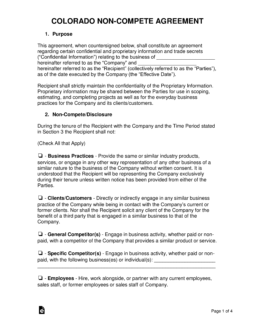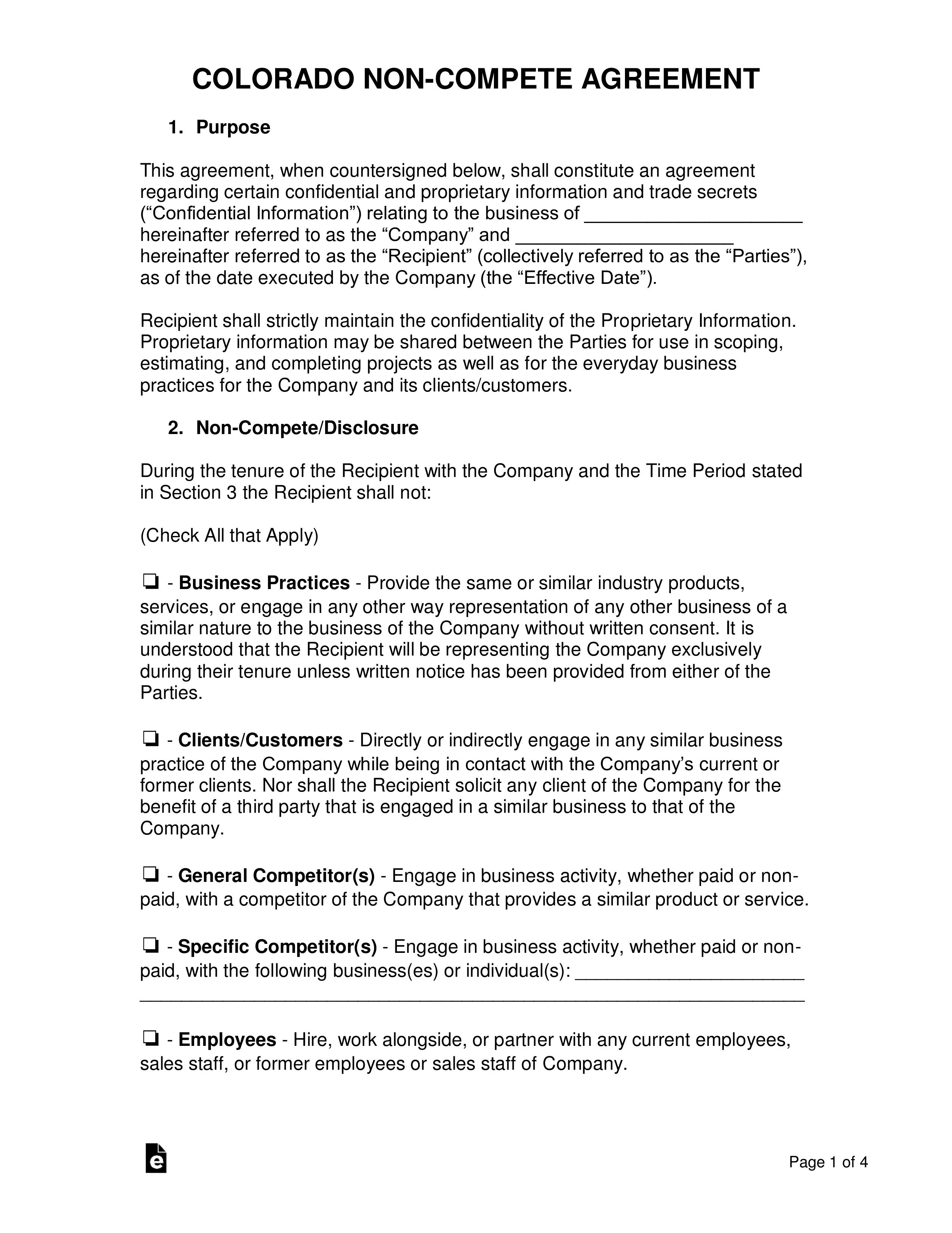Updated March 01, 2024
A Colorado non-compete agreement is used to restrict a person from being able to work in specific business industries. The law (§ 8-2-113 C.R.S.) is vague and attempts to restrict employers from using a non-compete but allows some exceptions. Agreements can still be executed between an employer and an employee, but newly updated as of August 10th, 2022 (HB 22-1317), only highly compensated earners make above $101,250 are valid, and the employee must be given ample time to review the agreement.
Laws
Legally Enforceable?
Yes, but with the following exceptions:[1]
- Sale of a business. For the purchase and sale of a business or the assets of a business;
- Trade secrets. For the protection of trade secrets;
- Individuals employed at least two (2) years. For the protection and costs involved with training and educating an employee who was employed for a period of at least two (2) years.
- Executive positions. Executives, officers, professional staff, and management or personnel.
- Highly-compensated earners. Those making more than $101,250.
Restricted Professions
- Attorneys. A licensed attorney may not enter into a non-compete.[2]
- Physicians. It is prohibited to restrict a physician from competing in any profession related to the practice of medicine.[3] (§ 12-36-102 C.R.S.)
Continued Employment
Continued employment is treated as adequate consideration for an employee being bound to a non-compete.[4]
Maximum Period
A one (1) year term for a non-compete has been considered valid in 23 LTD v. Herman (2019) and Lucht’s Concrete Pumping, Inc. v. Horner (2011).
There is no Colorado statute defining a maximum period.
“Trade Secret” Definition
“Trade secret” means the whole or any portion or phase of any scientific or technical information, design, process, procedure, formula, improvement, confidential business or financial information, listing of names, addresses, or telephone numbers, or other information relating to any business or profession which is secret and of value. To be a “trade secret” the owner thereof must have taken measures to prevent the secret from becoming available to persons other than those selected by the owner to have access thereto for limited purposes.[5]
Blue Penciling Not Allowed
The Colorado courts have ruled that an overly broad or unreasonable contract “cannot contractually obligate a court to blue pencil noncompete provisions.”[6]


